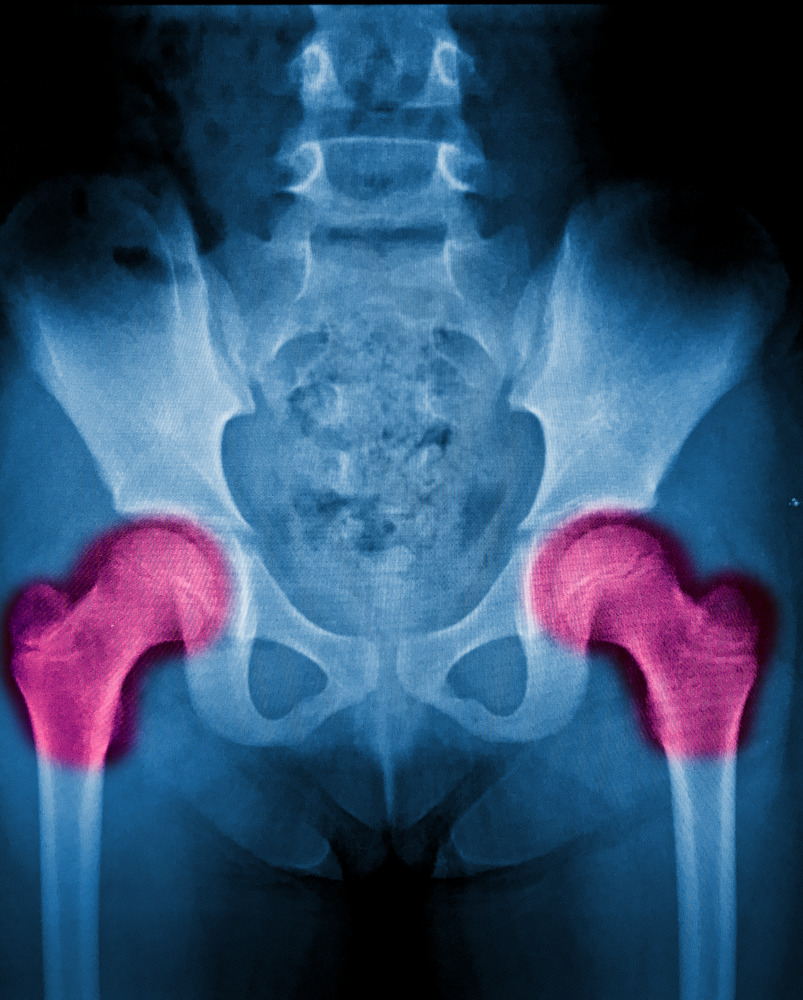ANTERIOR APPROACH HIP REPLACEMENT

We understand that replacing a hip can feel a bit daunting. While this surgery is a longer surgery with a couple of weeks of healing time and rehab, Dr. Nelson has made it easier for his patients by offering the anterior approach to hip replacement.
What Is the Anterior Approach to Hip Replacement?
The anterior approach for hip replacement is a minimally invasive technique that can make the early recovery after surgery better. This is because the anterior approach is a “muscle-sparing” approach to the hip that does not require cutting any muscles. During an anterior approach, Dr. Nelson makes a small incision near the front of the hip and works between muscles to access the joint.
In contrast, traditional approaches to hip replacement like the posterior approach, require splitting apart the gluteus maximus—the largest muscle in your body. This can damage the gluteus maximus permanently and lengthens the healing time.
Why the Anterior Approach for Hip Replacement?
- It is a minimally invasive, muscle-sparing approach to hip replacement.
- It is an excellent option to reduce pain and enable a quicker recovery.
- It has a lower dislocation rate than other approaches.
- Not all hip surgeons perform the anterior approach because it was adopted for hip replacement more recently and it is perceived to be more technically demanding.
- In the hands of an experienced surgeon, the anterior approach is a versatile and safe approach to the hip joint.
Anterior approach hip replacement is performed on a specialized orthopedic table that facilitates stable positioning of the patient during surgery and allows for the use of X-rays as needed during the procedure to ensure the ideal position of the implants and recreate anatomic leg lengths.
Dr. Nelson utilizes hip navigation during anterior approach hip replacement to further improve the process of bone preparation to place the implants in the ideal position for each patient.
Dr. Nelson’s Training in Hip Replacement
Dr. Nelson trained extensively in the anterior approach, which is more technically demanding but offers better results for each patient. His fellowship was at the Anderson Orthopedic Research Institute, which is well known for training doctors in advanced techniques.
Our Surgery Process
Consultation
Dr. Nelson likes to start with a consultation to get to know you and your concerns. He will determine if a hip replacement is the right option to manage your hip and joint pain. If he suggests a hip replacement, he will also suggest what kind of hip replacement would be best for you: a full or partial hip replacement, and a posterior or anterior hip replacement.
Anesthesia
Dr. Nelson works closely with anesthesiologists at the hospital to ensure that you are comfortable the entire time you are at the hospital. You will go into pre-operations and we will walk you through the surgery and introduce you to the anesthesiologist.
Hip Replacement Surgery
Once you have gone through pre-op, we will have you get comfortable on the specialized orthopedic table before we give you an IV that will put you to sleep for the duration of the surgery. The surgery lasts approximately 1–2 hours. You may wake up slightly groggy and disoriented, but it will dissipate within the next 15 minutes. You will then stay in the post-op room for a short time.
Recovery
Most patients are able to recover in the comfort of their own home the night of surgery. If your medical or social constraints make it so outpatient surgery is not the safest option for you, we may choose to have you stay overnight in the hospital.
We will discuss detailed recovery instructions at your pre-operative appointment and ensure that all of your questions are answered.

What Are the Risks of Anterior Approach Hip Replacement?
Hip replacement is one of the most predictable and safest operations. It is an effective operation to relieve pain from hip arthritis. However, all surgical procedures carry some risk.
If your hip becomes dislocated, you should head to an emergency room, and contact your surgeon, Dr. Nelson. The nurses and doctors know how to treat someone who has recently had a hip replacement.
General Health Requirements for Hip Replacement Surgery
The risks of hip replacement have much less to do with the surgical approach than with your general health. It is important to talk to your surgeon about your overall health when considering hip surgery. To reduce these risks as much as possible, all our patients who need surgery are seen by a medical doctor during pre-op testing. This doctor collaborates with your other healthcare providers to optimize your condition for surgery.
Health Conditions That May Prevent Hip Replacement Surgery
Certain health conditions can make hip replacement surgery too risky or not recommended. Severe heart or lung diseases can pose dangers during surgery or anesthesia, as these conditions may make it difficult for your body to handle the stress of the procedure. Additionally, infections, especially in or around the hip joint, can prevent you from having the surgery until they’re fully treated, as the risk of spreading infection is high.
Other conditions like uncontrolled diabetes, blood clotting disorders, or severe osteoporosis can complicate the surgery or hinder recovery, making hip replacement less feasible.
Who is a Good Candidate for Anterior Hip Replacement?
A good candidate for anterior hip replacement is typically someone who suffers from chronic hip pain due to conditions like:
- Osteoarthritis
- Rheumatoid arthritis
- Hip avascular necrosis
- Trauma to the bones around the hip
Hip replacement is best for those who haven’t found relief from non-surgical treatments. This procedure is especially beneficial for individuals who are looking for a faster recovery and want to resume an active lifestyle. Younger, more active patients often benefit from the anterior approach because it allows for quicker recovery and less disruption to surrounding muscles.
Age isn’t necessarily a limiting factor, but candidates should be healthy enough to undergo surgery and the rehabilitation process. This approach is especially suited for people who wish to minimize post-surgery pain, reduce recovery time, and preserve muscle strength. Dr. Nelson will evaluate your specific condition, including the extent of joint damage, activity level, and overall health, to determine if the anterior approach is the best option for you.

Preparing for Hip Replacement Surgery
To ensure a successful hip replacement, you must be in good health before the procedure. Start by managing any chronic health conditions, such as high blood pressure or diabetes, as controlling these can reduce the risk of complications.
Discussing your medications with your surgeon is also crucial, as you may need to adjust or stop certain drugs before surgery. Maintaining a healthy weight and staying as active as possible will help strengthen your muscles, which can aid in recovery. Smoking can impair healing, so quitting is required before surgery to improve your outcome and overall health.
A Newer and Better Approach to Hip Replacement
If you’re struggling with hip pain and want to explore how the anterior hip replacement approach can help you get back to an active, pain-free lifestyle, Dr. Nelson is here to guide you. With his expertise and commitment to minimally invasive techniques, you’ll be in skilled hands every step of the way.
Don’t let hip pain hold you back any longer. Fill out our pain evaluation form to take the first step toward a more comfortable, mobile future. Once submitted, our team will review your information and reach out to schedule a consultation tailored to your needs.
Start Your Journey to Hip Pain Relief Today
Dr. Nelson offers compassionate care that seeks to address the root of your hip pain, whether that be wear and tear, a genetic issue, or anything in between. You can schedule a visit with Dr. Nelson in the Gilbert area by filling out his consultation form to get started with treatment in the Gilbert, Arizona, region and beyond.